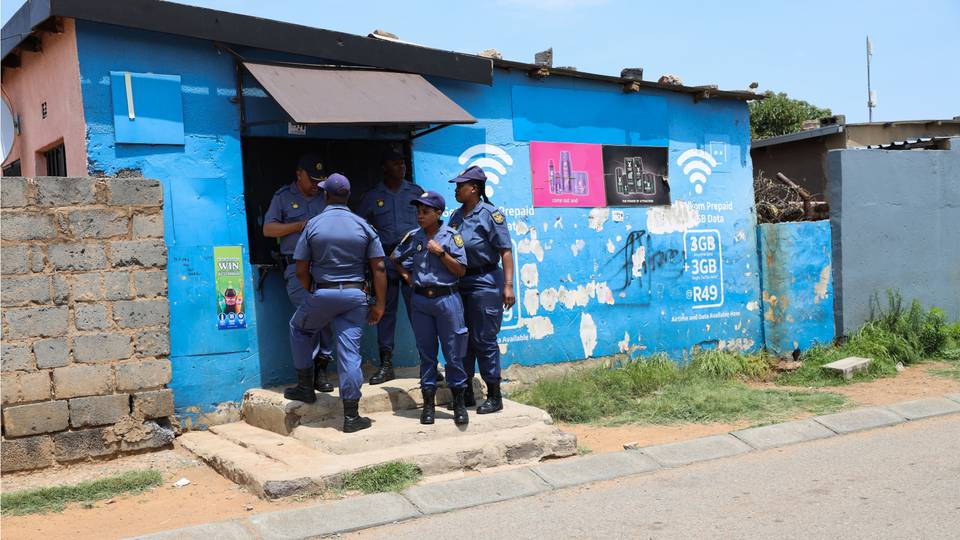Sport
Dollar
38,2552
0.34 %Euro
43,8333
0.15 %Gram Gold
4.076,2000
0.31 %Quarter Gold
6.772,5700
0.78 %Silver
39,9100
0.36 %The government is blaming spaza shops for the recurrent episodes of child deaths, but health experts say the problem is bigger than the government admits.

By Emmanuel Onyango
The death of at least 23 children in Johannesburg last month from suspected food poisoning set off a chain reaction that saw the South African government this week classify foodborne illnesses as a ‘’national disaster’’.
In between, public sentiment focused on the role of convenient stores – spaza shops, as they are locally known – in the food poisoning-related deaths. The shops have been a predominant feature in townships, tucked inside neighbourhoods, and much preferred for their proximity, convenient operation hours and for selling single items.
‘’Spaza shops are convenient stores in the communities and late at night they are still open. Communities have built relationships with spaza shops, even if they just want to buy a cupful of sugar or one egg,’’ Rosheda Muller, chairperson of the National Informal Traders Alliance of South Africa, told TRT Afrika.
The government is blaming the shops for poor handling of snacks and food linked to recurrent episodes of child deaths.
Facing public pressure to act, President Cyril Ramaphosa this month announced stricter regulations, including registration of all spaza shops and other food-handling facilities within 21 days in the municipalities where they operate. He said they should also meet all health standards and requirements or face closure.

At stake is an informal retail sector that supports over three million people, according to the government’s statistics agency.
However, public health experts say the problem is bigger than the government admits, after repeated warnings on pesticide control across the country and safety of food supply chains.
There are the still unanswered questions regarding the continuing child deaths linked to food poisoning, Angelique Coetzee, chairperson of the South African Medical Association told TRT Afrika.
‘’If it is only related to the spaza shops, why is it that only children of a certain age group are getting sick and not the adults?’’ wondered Dr Coetzee.
A South African study released in 2023 found that more than 50% of child deaths in a 10-year review of child fatalities were from pesticide poisoning; it blamed the deaths on the availability of highly hazardous pesticides sold as street pesticides for domestic use in poor neighbourhoods.
‘’The government, including the National Department of Health and various provinces, needs to be open and transparent and tell us exactly what we are dealing with. Did they explore all the avenues or are they only focusing on spaza shops?’’ she asked.

The spaza shops are a hot potato issue. A suspected food poisoning incident in Naledi, Soweto township last month – where children died after buying snacks at spaza shops – sparked chaos, with local residents attacking and looting a shop owned by a foreign national.
With hundreds of food contamination cases confirmed over the last three months, the government’s move to regulate the informal retail industry was seen as overdue.
The qualifying criteria for registration stipulate that the owner of the business must be a South African citizen and the business must be registered with the local municipality.
However, there are concerns of capacity constraints to meet the deadline for compliance.
‘’Spaza shops are the heartbeat of communities, but they have to be regulated – and there should be a proper enabling environment to operate. But it is impossible to do it in 21 days. We, as a national movement, have written to the president to ask for more time, because it is quite a long procedure to register,’’ Muller said.
‘’They should definitely give us a year, because the municipalities do not have the capacity to register the informal traders. There are millions of informal traders in South Africa, and a big number of them are in spaza shops and are food vendors,’’ she added.
Health experts, however, say the proposed regulation could prove ineffective in addressing the perpetual crisis.
‘’Currently, the focus is only on spaza shops, but I think it’s more broader than spaza shops. Where were the health and safety inspectors these past few years? Did they do their job? The whole picture needs to be looked at,’’ said Dr Coetzee.
➤Click here to follow our WhatsApp channel for more stories.
Comments
No comments Yet




















Comment